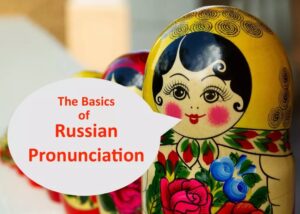
Microbuses: Your Guide to the Fastest Way to Travel Around Cairo
Learn how to ride microbuses in Egypt. Maissara gives us tips and teaches us the hand signals and essential phrases in Egyptian Arabic.

20 Fascinating Tunisian Arabic Proverbs
Let’s explore twenty of the most famous Tunisian proverbs and discover their meanings and usage.

Visiting the Dreaded Mogamma in Tahrir
If you’ve ever had the “pleasure” of visiting the dreaded Mogamma, you’ll empathize with Ahmed and understand why he had to make three trips just to get one document issued.

Comparative in Russian with Намного (much more)
This short video is about forming the comparative degree of Russian adverbs or adjectives when we need to show to what extent something is bigger, cheaper and so on.

10 Pairs of Easily Confused Russian Verbs
Review the conjugations of these common verbs to avoid mixing them up.

Alaa in Nubia
Alaa falls in love with Nubia and its culture. But what about the crocodiles?

Using the Beginning Learner’s Russian Dictionary
Get to know the Beginning Learner’s Russian Dictionary. Take a look at the organization of the entries and the wealth of lexical and grammatical information the dictionary contains.

The Basics of Russian Pronunciation
To pronounce Russian correctly, you first need to know the sounds represented by the letters of the Russian alphabet, both consonants and vowels.

Tunisian Arabic Grammar
This is a brief introduction to Tunisian Arabic grammar. It covers the basics of noun and adjective inflections as well as verb conjugations. It also highlights some of the idiosyncrasies of Tunisian Arabic that distinguish it from other varieties of Arabic.

My Friend’s Big Day
Alaa’s best friend had to defend her thesis to receive her Master’s degree. Was she successful?

Darwin at the Library
Ahmed didn’t get much studying done before the exam. What distracted him? And how was the exam?

How to say “one cannot” / “it is not allowed” in Russian
Today I would like to tell about a very common mistake among learners of the Russian language. It is the way to say: One cannot / It is not allowed/ It is forbidden.
